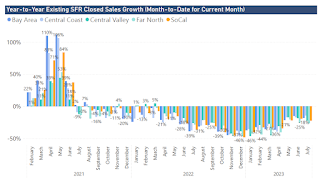 |
| Craftsman Bungalow style homes |
Selling your home is a significant decision, and the current Long Beach market in 2025 presents several compelling reasons why homeowners may want to take the leap. Whether you're considering relocating, downsizing, or capitalizing on current market conditions, here are the top 10 reasons to sell your residential property this year.
1. Rising Home Equity
Homeowners in Long Beach have seen a steady increase in home values over recent years. If you've built significant home equity, 2025 might be the right time to capitalize on your investment. Selling while property values are still high allows you to maximize your returns before any market shifts occur.
2. High Buyer Demand in Long Beach
The Long Beach housing market remains competitive, with a high demand for properties in desirable neighborhoods. With many buyers looking to settle in this coastal city, selling your home could be an opportunity to get multiple offers and potentially sell at a premium price.
3. Interest Rate Considerations
While interest rates may be rising in 2025, or staying the same, they’re still historically low compared to past decades. This makes homebuying attractive for potential buyers in Long Beach, driving demand for properties. If you sell now, you can take advantage of favorable conditions for both you and the buyer.
4. Relocation for Job or Lifestyle Change
Whether for work, family, or lifestyle reasons, many homeowners in Long Beach decide to relocate. Whether you’re moving to another city, state, or seeking a new neighborhood in Long Beach, selling your property is often necessary to facilitate your next chapter.
5. Downsizing to a Smaller Home
If your children have moved out, or you simply want a more manageable living space, 2025 is a great time to downsize. The Long Beach area offers many smaller homes and condos that could provide you with lower maintenance costs while still offering access to the community you love.
6. Changing Family Needs
Your growing family or lifestyle changes might require a new type of home. Whether you're looking for more space or specific features such as a larger yard, more bedrooms, or proximity to schools, selling your current property to upgrade is an excellent reason to enter the market in 2025.
7. Capitalizing on Rising Rents
With rising rents in Long Beach, many homeowners are selling and moving into rental properties that better suit their financial or lifestyle needs. By selling your home now, you may find a more affordable option in terms of monthly payments or expenses. Please contact me for a list of rental properties.
8. Tax Benefits of Selling
In 2025, there may be certain tax incentives for sellers in Long Beach, including exemptions on capital gains tax under specific circumstances. Don't forget about Proposition 19 benefits for transfer of property tax base. Consulting a tax advisor can provide insight into how selling your home can benefit your long-term financial goals.
9. Avoiding Future Maintenance Costs
Older homes often require expensive repairs and updates. If you’ve been putting off necessary repairs, selling your home before significant maintenance costs pile up might be a wise decision. In a strong market like Long Beach’s, you can probably sell quickly and avoid the hassle and costs of further home improvements.
10. Taking Advantage of Competitive Market Conditions
2025 is expected to be a competitive year for sellers in Long Beach. With multiple buyers looking for homes, particularly in desirable neighborhoods like Belmont Shore or Naples, you may be able to sell at a higher price than expected. In the lower priced areas, under $900,000, buyers are actively looking.
The increased competition from buyers can work in your favor, especially if your home is well-maintained and staged.
To look for your next property, or to see what it selling in your current area, go to my site which explores properties on one of the largest comprehensive MLS's in the country at Property Search
For a market value analysis for your property and what potential net proceeds might be from a sale, please contact me, I'm available in person or for online help. Just call, email me or text. And check out the Market Reports on my website below, reports have detailed information concerning various neighborhoods and property types. Check back because it's periodically updated with new reports.
Julia Huntsman, REALTOR, Broker |
http://www.abodes.realestate |
562-896-2609 |
California Lic. #01188996



















